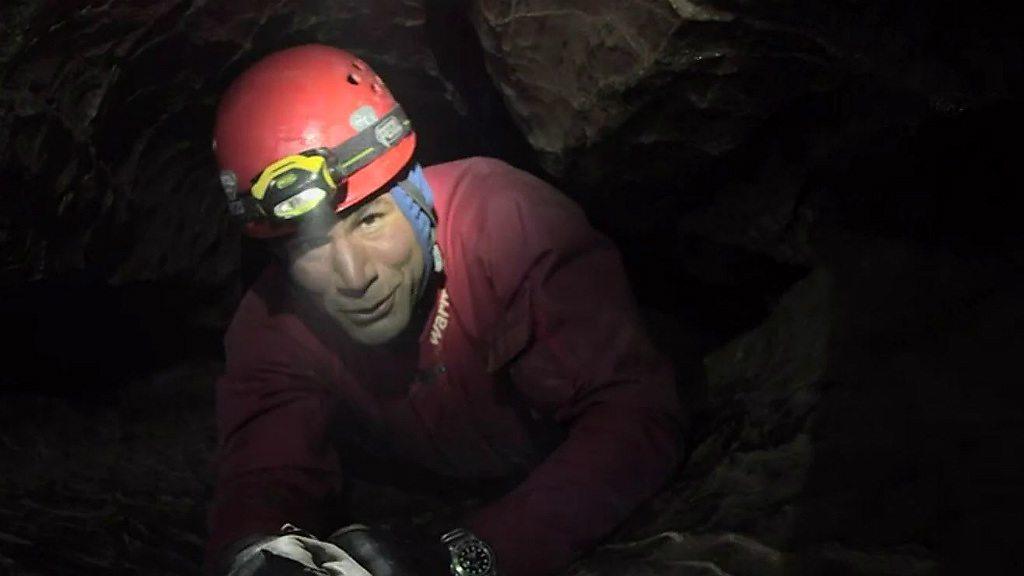BBC Unsung Hero: How the Gunneys helped Anne Dickins to Paralympic gold
- Published
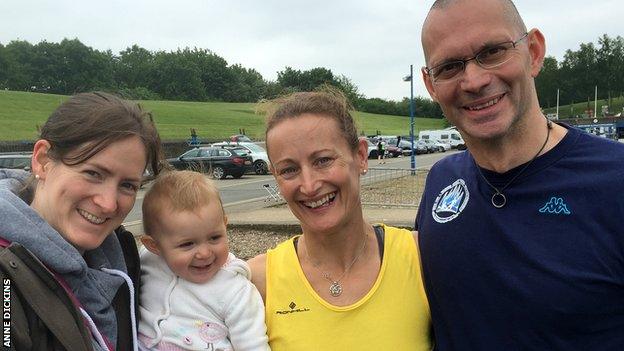
Anne Dickins is so close to Claire and Phil Gunney she is godmother to their daughter Isla
It is often said that money was the root of Great Britain's Olympic and Paralympic success. But the real roots are hidden, unless you go digging.
Money provided the big baubles to hang on the tree. But if it wasn't for the many thousands of volunteers across the country, the tree would be withered.
Volunteers like Phil and Claire Gunney, for whom no dream is too big or too silly. Fancy competing at the Paralympics in 2020? Perhaps give them a call.
That is exactly what Anne Dickins - who was born in Glasgow - did, back in the summer of 2012. Dickins fancied competing in the GB Para-canoeing trials. The problem being, they were in seven weeks' time. Actually, there was another problem: Dickins was 45. Oh, and there was another one: Dickins had never sat down in a canoe before.
"We thought it was a little bit mad," says Phil Gunney, a volunteer coach at the Wey Kayak Club in Guildford, Surrey.
"It's a sport that normally takes about 10 years to perfect and she wanted to compete in the British trials in less than two months.
"But we like a challenge. So we said: 'Yes, I'm sure we can help'."
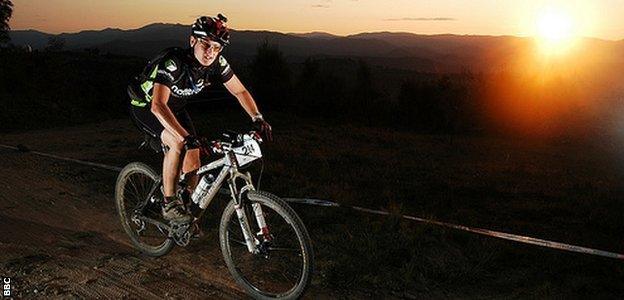
Dickins was an endurance mountain bike racer before sustaining her back injury in 2011
Dickins had been an endurance mountain biker before being laid low by a freak injury.
Having ricked her back sleeping with a bicycle pump in her pocket, Dickins then ruptured a disc while putting on a shoe. And that, she thought, was that. Dickins, for whom competitive sport was everything, was inconsolable.
Having partially come to terms with her predicament, Dickins started to volunteer as a physio at cycling meetings before landing a job at the London Olympics.
And it was a chance meeting with GB Para-canoe coach Colin Radmore, also a Games Maker in London, which sparked some alchemy.
"I didn't hesitate before making that first phone call because I just really wanted to do something," says Dickins.
"And when you really want to do something, you don't see reasons why not, you only see the possibilities. But even then, you've got to have people who believe in you as well. Phil and Claire did believe.
"For other people to believe it was possible, and not the weirdest thing in the world, was really powerful."
When Dickins first met Phil Gunney, she offered to pay him for his time. Gunney, says Dickins, "looked at me like I was an alien".
"Phil said to me: 'Canoeing and kayaking have given me so much and the currency we use is giving back. I'll help you, but what always happens in our sport is that at some point you give back to the next generation.'"
Riding a mountain bike on and off for 24 hours and paddling a canoe for 50 seconds doesn't have much in common. No matter. Find people kind enough to help, whatever it is you want to do, and the mad can suddenly become realistic.
"I have the attitude that if somebody wants to do something, we have to enable them to do it," says Gunney, who fits his volunteering around his day job as a driving instructor and who spent many years coaching his wife, a former British kayak marathon champion who now works for Surrey Police.
"However mad something sounds, if someone has a dream, you've got to find a way to make that dream come true. It's about having a 'yes we can' attitude rather than an 'erm, no, we can't' attitude.
"There will always be obstacles, even more so for Paralympic athletes, but there are always ways to make things work. If they are willing to put the work in, who am I to say it's not possible?"
Remarkably, Dickins won the GB trials and immediately asked: "What's next?"
The Gunneys, who had only signed up for seven weeks and had been enjoying a relaxing life away from elite sport, suddenly had a live talent on their hands.
In 2013, Dickins won the European Championships and finished second at the Worlds, after which the national coaches became more involved in her development. But the Gunneys never stopped being there.
"It's been the longest seven weeks of their life," says Dickins. "Because it's lasted four years so far!"
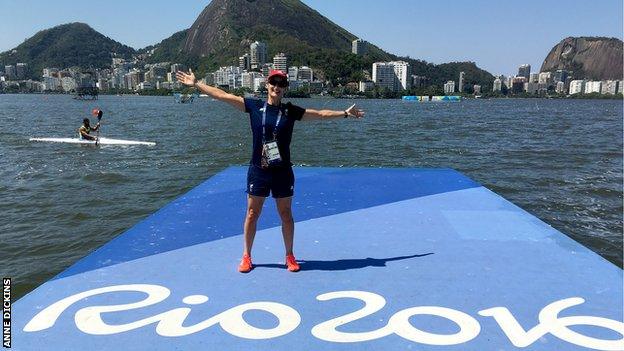
Anne at the Lagoa in Rio on her race day during the 2016 Paralympics
At the Rio Paralympics, Dickins repaid that selflessness by winning gold. And when the medal was placed around her neck, she was thinking about her roots.
"I felt a responsibility to do my best for everyone who had helped me," says Dickins, who is so close to the Gunneys she is godmother to their daughter.
"They helped turn me from a middle-aged, working mum who was in a bad place into an elite athlete. They helped turn my life around and make me feel complete.
"What they gave me was far more valuable than a pot of gold."
Visit Wey Kayak Club on any given weekend and you'll see little dreams being facilitated all across the river: the little girl paddling 100m for the first time; the 70-year-old man doing something he never thought he would; the elite athlete improving her times.
Without those volunteers, the whole thing would collapse.
"It's nice to see people achieve those dreams," says Gunney. "But all I'm doing is repaying what countless people did for me when I was young. I'm just a link in the chain that allows the sport to carry on.
"Anne doesn't owe us anything. She did it, not us. Her going out and inspiring other people is enough."
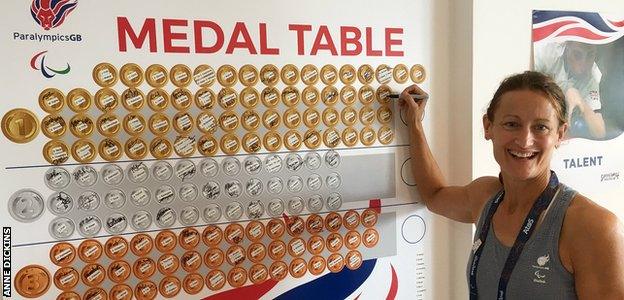
Dickins signs her name after winning gold at the Rio Paralympics
Since her triumph in Brazil, Dickins has been busy as usual. She is back at her day job as a physio and has a wedding to plan.
But she's also been out on the Wey, paddling with some ladies at the club, passing on tips, regaling them with tales of Rio and telling them how it all started.
"There's a lot of selfishness in elite sport so I enjoy giving back," says Dickins.
"I think about all these amazing people who give their time for no money and very little appreciation. The only reward might be the smiles on the kids' faces.
"But volunteering is a beautiful way of passing on knowledge and enthusiasm.
"It's lovely to be defined by what you give back and how the world grows because of what you touch. More people should remember to say thank you."
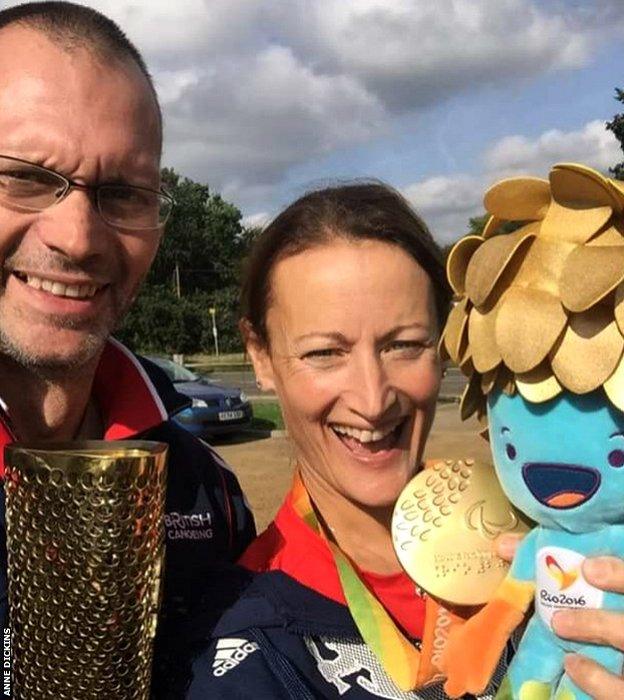
Anne and Phil (with his wife Claire's London 2012 Olympic torch) have visited a local primary school to tell their story and show off Anne's Rio souvenirs
- Published31 October 2022
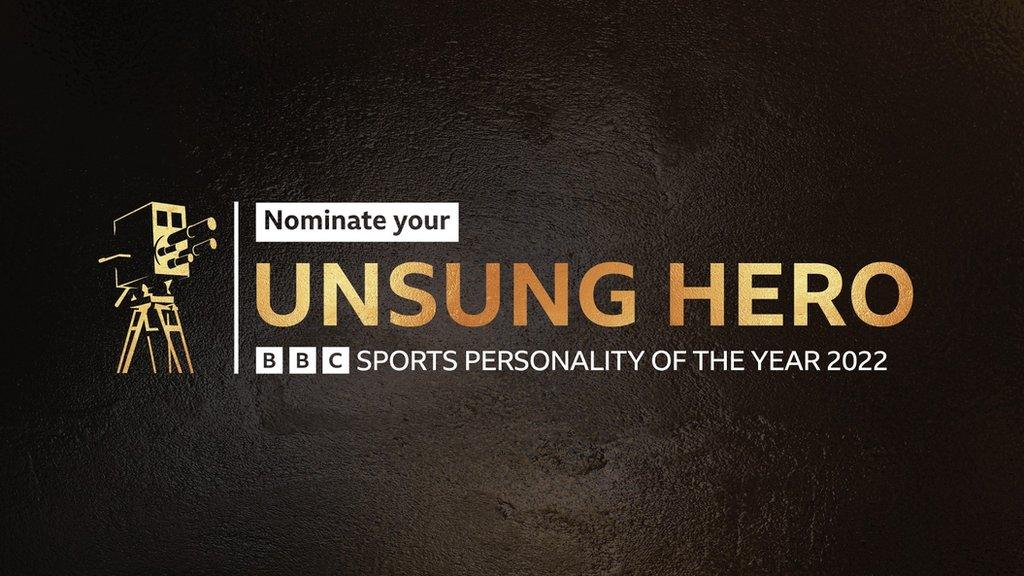
- Published10 July 2014
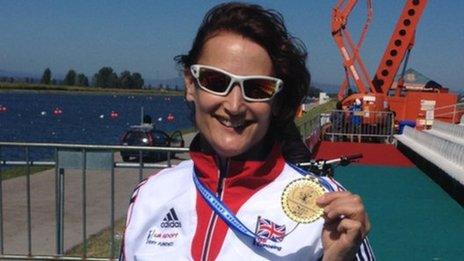
- Published24 August 2016
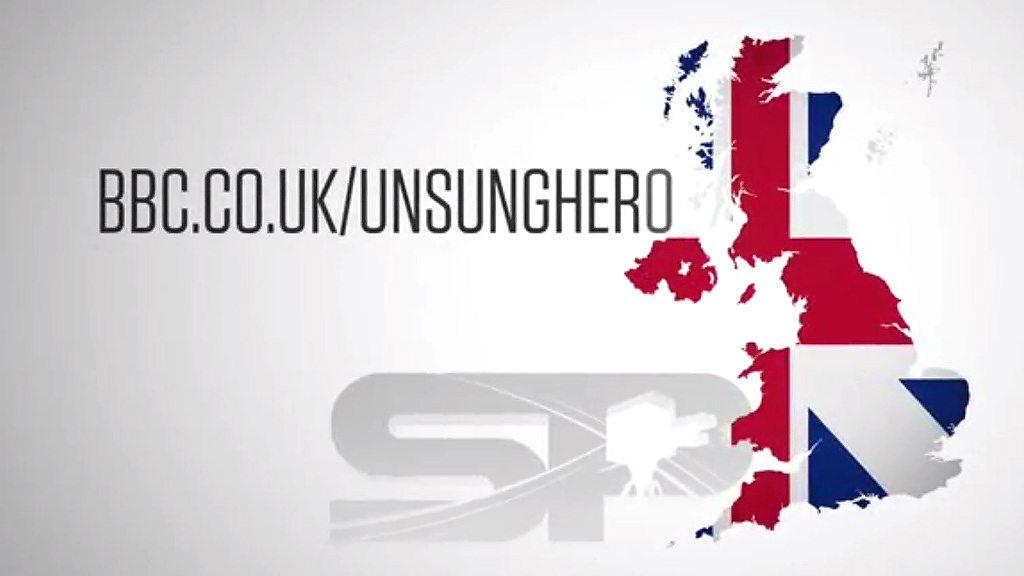
- Published16 September 2016
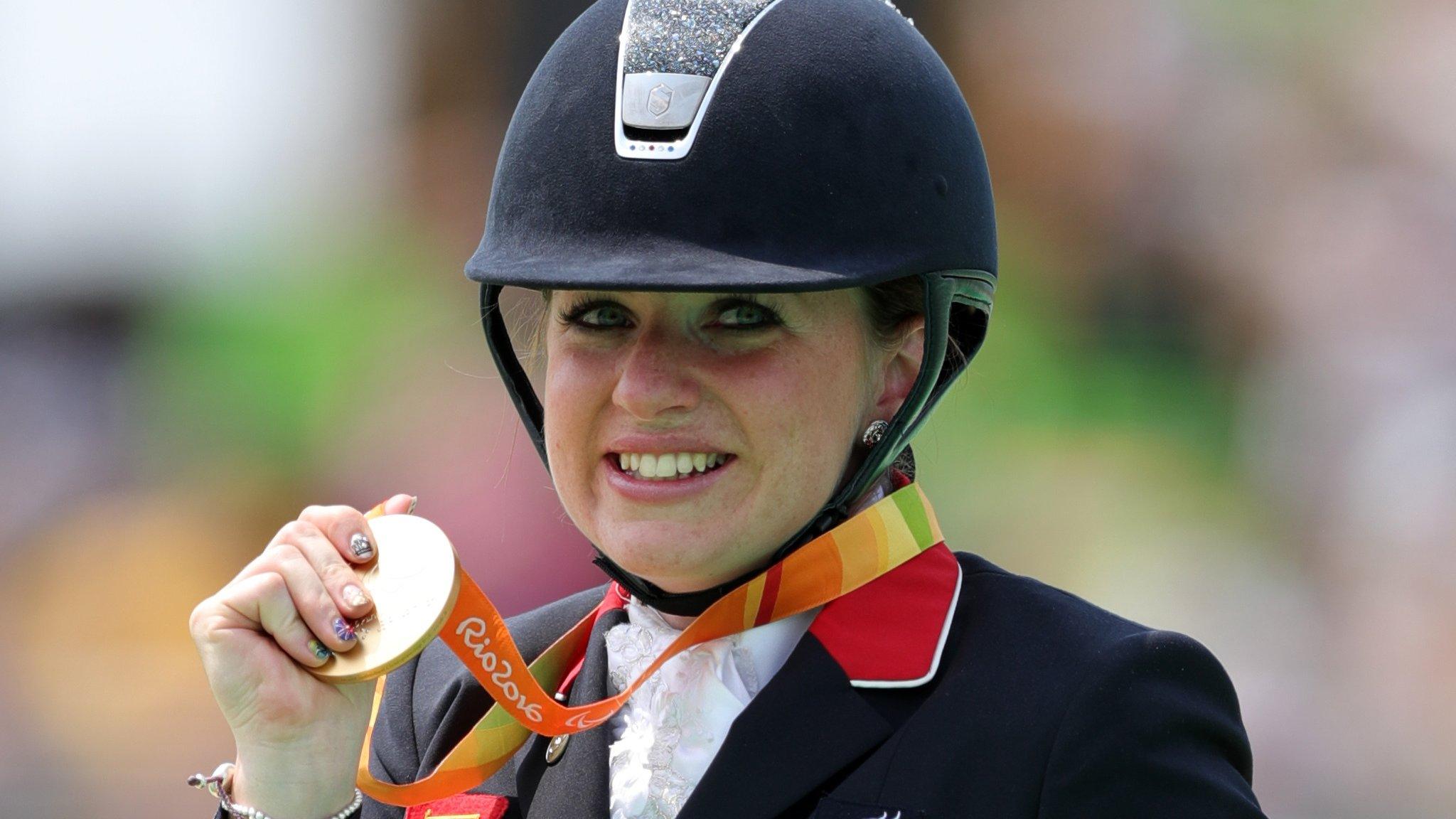
- Published26 September 2018
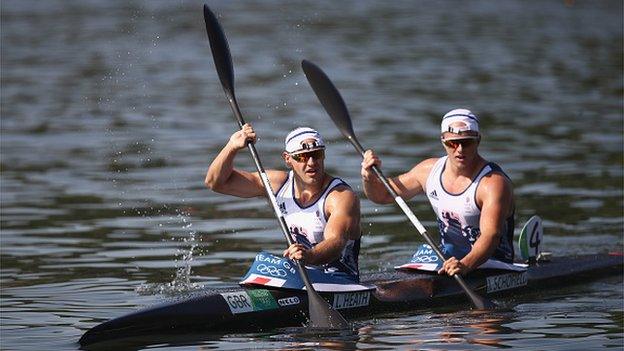
- Published9 August 2016
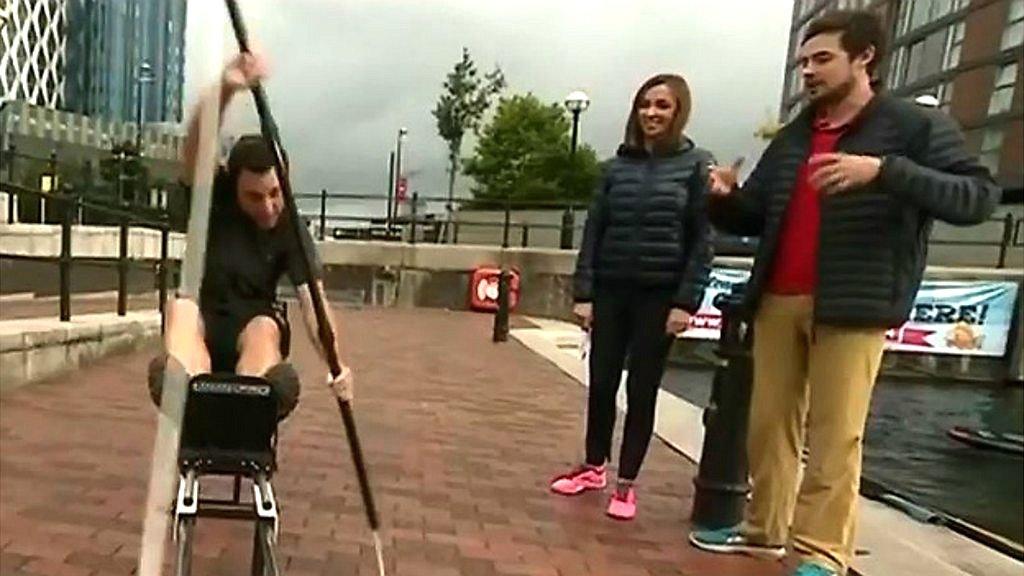
- Published13 August 2018
- Published11 July 2014
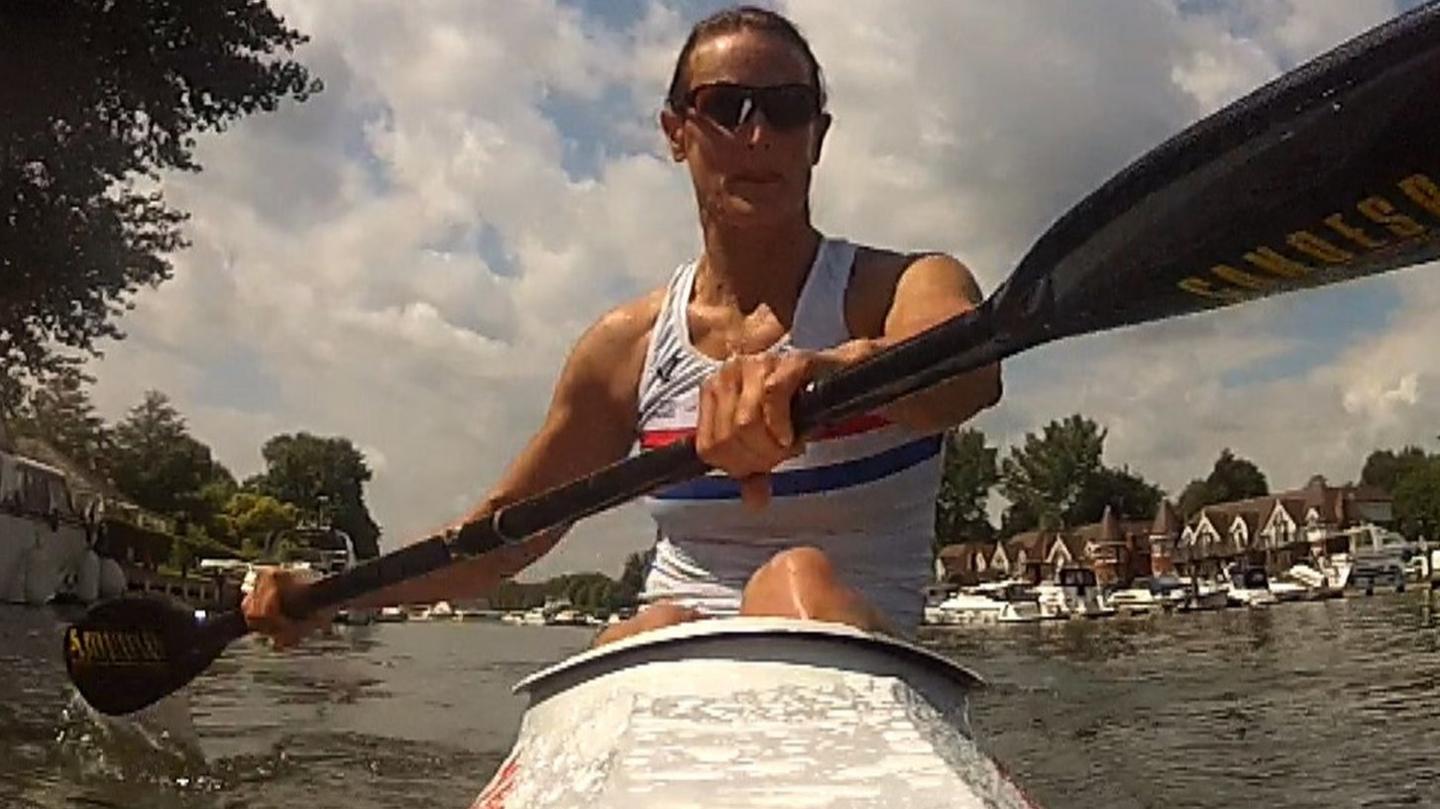
- Published12 September 2016
